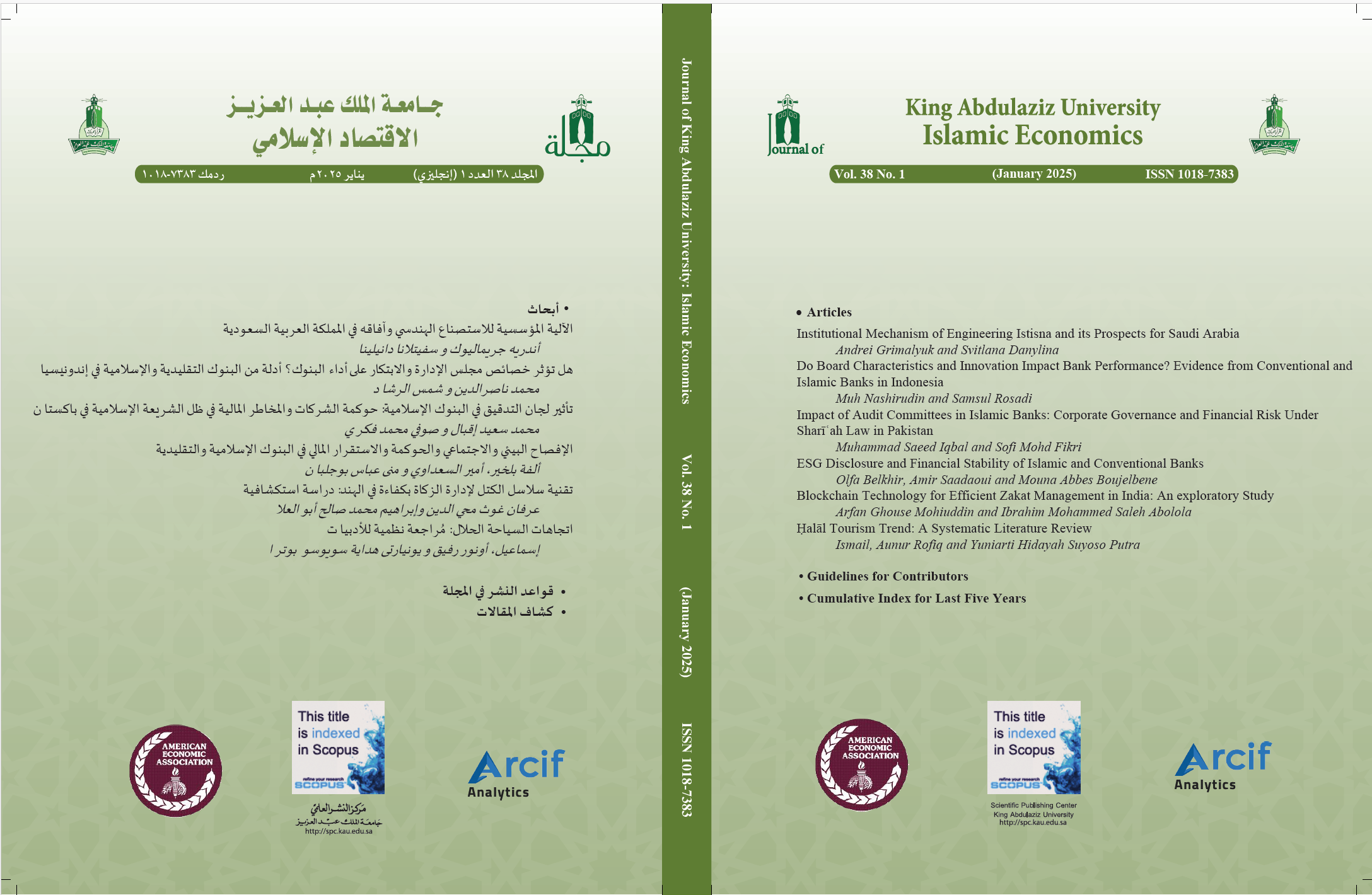Blockchain Technology for Efficient Zakat Management in India: An Exploratory Study
Main Article Content
Abstract
This review explores how blockchain technology can revolutionize Zakāh management in India, addressing persistent transparency and trust issues. Zakāh, a core Islamic practice aimed at reducing socioeconomic inequality, often falls short of its potential due to inefficiencies and a lack of accountability in the current system. By analyzing secondary sources, this study highlights how blockchain and smart contracts can transform Zakāh collection and distribution. The proposed model promises greater transparency, trust among donors, and more efficient fund allocation, which could boost formal contributions and significantly reduce poverty in the Indian Muslim community. A critical insight is the lack of research on blockchain’s role in Zakāh distribution and its societal impact in India. Additionally, outdated data on Zakāh funds underscores the need for modernization. The study synthesizes existing knowledge through a systematic review while addressing ethical concerns and methodological limitations. Adopting a qualitative approach, it provides a fresh perspective on blockchain’s potential to enhance Zakāh systems and offers a practical framework for policymakers and religious leaders to implement meaningful changes.

